Jared Harris: ‘The Royal family should be delighted by The Crown’
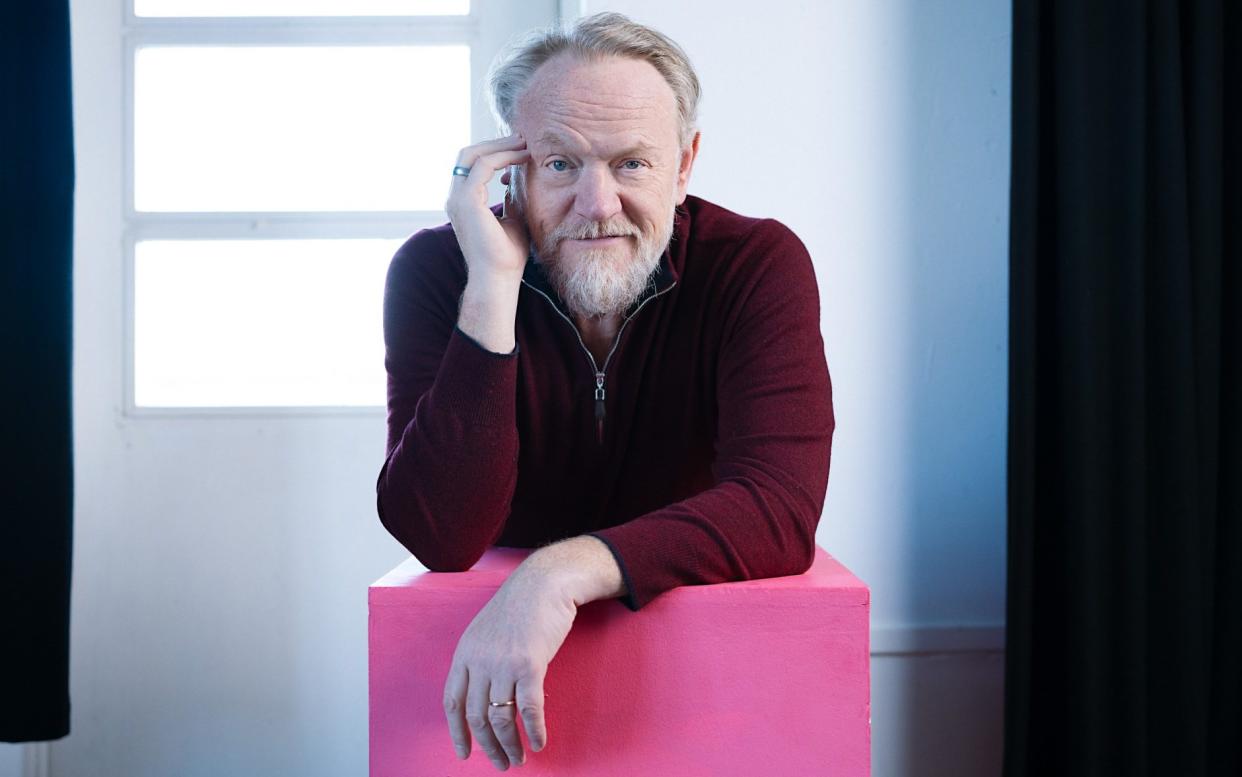
- Oops!Something went wrong.Please try again later.
- Oops!Something went wrong.Please try again later.
- Oops!Something went wrong.Please try again later.
- Oops!Something went wrong.Please try again later.
- Oops!Something went wrong.Please try again later.
Before we get stuck into our interview, I want to ask Jared Harris – star of Chernobyl, Mad Men and a host of other small screen smash hits – what he thinks of The Crown, the first part of the sixth and final season of which was released on Netflix earlier this month. Harris, of course, was an early Crown success story, winning rave reviews for his performance as the ailing George VI during the first season in 2016.
“The Royal family should be delighted by The Crown”, he says, with an insouciant flourish, leaning back in his chair. “It completely humanises them. The trick with those types of characters is to find something you can connect with which allows you to inhabit their world.”
Humanising those types of characters – the emotionally remote and inscrutable – is one of Harris’s specialities. After all, this is the man who got two Emmy nods for his agonisingly poignant performance as Lane Pryce in Mad Men, somehow turning that clinically withdrawn number cruncher into one of the show’s best loved characters. His route into the sensitive, buttoned-up soul of the dutiful George VI came from Marion Crawford’s memoir The Little Princesses, which told of her time as governess to Princess Margaret and Princess Elizabeth.
“She revealed that the King and Queen were so keen to hold onto the idea of themselves as an ordinary family that, every morning, the two girls would be brought to their parents’ bedroom and they would spend an hour jumping on the bed,” says Harris, his fruity voice ricocheting off the wall of the east London rehearsal studio where we have met.
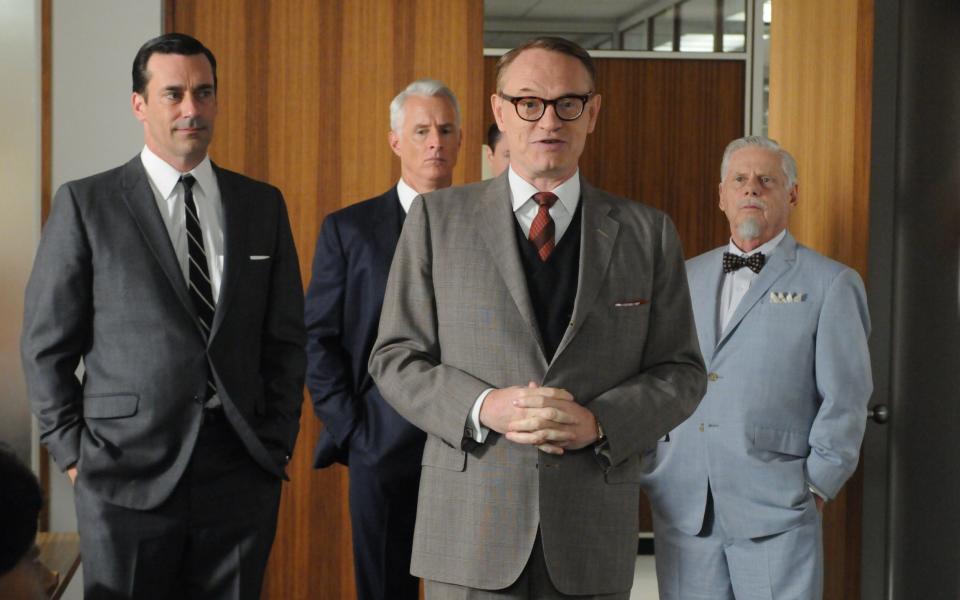
“It happened every day without fail, right up to the morning of Princess Elizabeth’s marriage to Prince Philip. Of course, they spent the remainder of the day being other people, but for that one hour, George was determined to protect the family unit. Once I read that, everything about him made sense.”
It’s telling that this detail should have stuck with Harris, 62, since it’s similar to a memory he has of his own father, the wild Irish actor Richard Harris. Harris Snr, a legendary reprobate whose gargantuan appetite for women and booze often eclipsed his headstrong, dazzling talent, was married for 12 years to Jared’s mother, the socialite Elizabeth Rees-Williams, with whom he had three sons and who died last year, although the pair divorced amicably when Jared was eight, in 1969.
“My older brother Damian [a director] can remember my parents living together but I don’t have a memory of my dad being at home,” he says. “Except one, when we woke up one morning at the house they shared in Bedford Gardens and he was there. We all jumped up onto the bed.”
It’s impossible not to ask Harris about his parents, not least since, and perhaps rarely for the scion of a famous father in particular, he’s more than happy to discuss them. First though, we get to the matter in hand: Pinter’s 1965 play The Homecoming. In a rare visit to the British stage, Harris, who lives in LA and New York with his third wife, the American TV host Allegra Riggio, is starring opposite Joe Cole in a new production directed by Matthew Dunster.
The play is an ugly, slippery piece of work, a house-of-horrors enigma about a father, Max (Harris), and his three sons, Teddy, Lenny and Joey, who decide to set up Teddy’s new wife Ruth in business as a sex worker. So sexually repressed and screwed-up is this family of man-children they can’t bring themselves to admit to each other the specifics of the job, although Ruth – in the play’s great unsettling provocation – not only intuits what they want from her but readily agrees.
“Antonia Fraser [Pinter’s widow] says in her diaries that if a production of The Homecoming isn’t deeply offensive and upsetting then it’s not a very good production,” says Harris with audible satisfaction. “So you’ve got licence to be offensive. Which is great. Too much good taste can sometimes be irritating.”
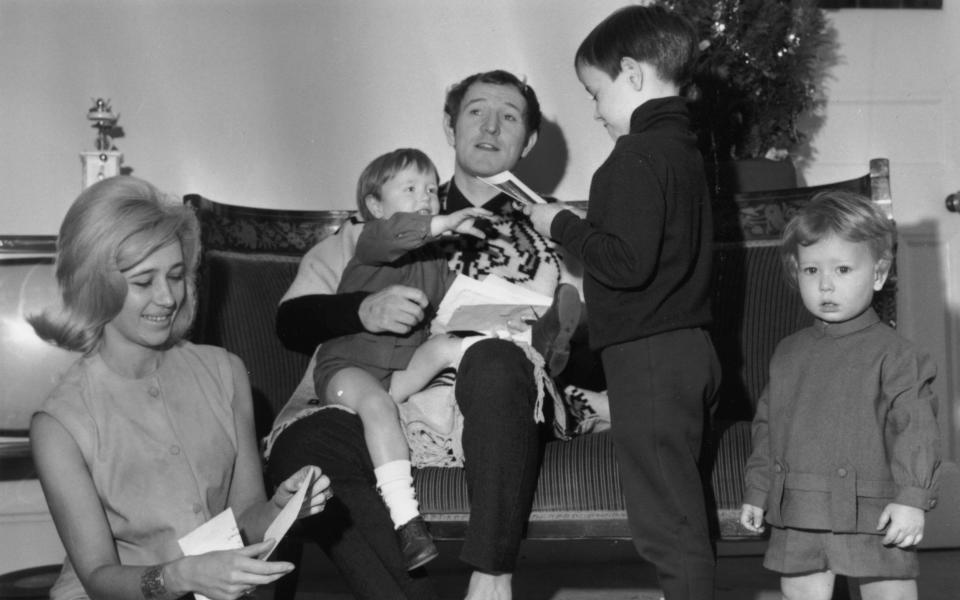
Harris is refreshingly frank about the subject of acting. There’s no luvvie affectation or garbage about “the process” with him. When I ask him about Max, the tyrannical narcissistic family patriarch, he says: “Max is a f------ nightmare. He and his sons are in a constant battle to determine who is on top. You see it in men all the time – jostling in packs on a Saturday night.”
He’s resolutely un-starry. With his everyman shirt and jeans, it’s easy to imagine him disappearing into a crowd. He’s very sure of himself, yet also equable and relaxed. His career has been steady since his first film appearance in The Rachel Papers in 1989, but it has become remarkable in the era of streaming. Mad Men (2009-2012) made him a name, then came The Crown (2016); the supernatural Arctic horror and stealth hit The Terror (2018), in which he played Sir Francis Crozier; and then his extraordinary tormented Valery Legasov, who led the clean-up operation in the harrowing miniseries Chernobyl.
The small screen loves him, able to make the most of that craggy, not-quite-chiselled face, with its extraordinary capacity for stillness and nuance. Yet when I suggest that he has a certain style that lends itself to the small detail over the grand gesture beloved, perhaps, of actors like his father, he bats the question away. “I’ve never thought about my style. Anyway, there haven’t been many changes to the styles of acting since Marlon Brando.”
He always knew, on some subliminal level, he wanted to be an actor. “It would be stupid to think my parents didn’t influence me,” he says. “Including my mother, who was also an actress, but who, when we were born, had to give up her career. She was passionate about acting and the theatre. That was always a conversation my dad could have with her. When he appeared in Pirandello’s Henry IV in 1990 [which, given Harris’s truculent behaviour during rehearsals, became an unlikely West End critical hit], she gave him excellent notes. He would always listen to her.”
Yet he didn’t actively pursue it for years. Only on leaving school – he boarded at Ladycross School in Seaford, East Sussex, from the age of seven and then Downside School in Somerset – did he opt to study drama at Duke University in North Carolina, from which he graduated in 1984.
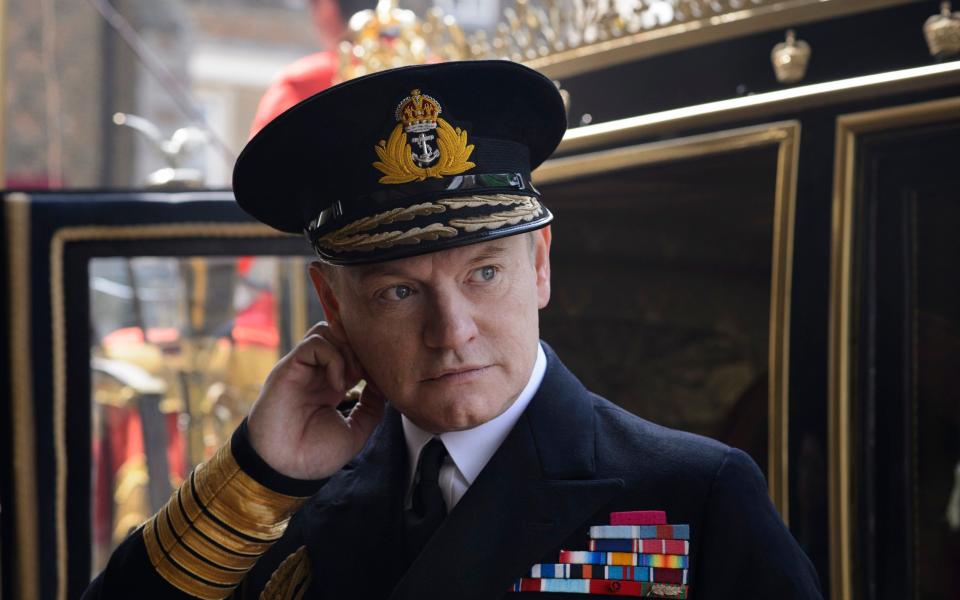
“I went to America to get away,” he says. “I wanted to figure out who I was among people who didn’t know anything about my background or where I fitted in.” As a result he found himself a fish out of water. “People thought I was weird. Although, to be fair, for a month I wore odd shoes, because I had arrived with only two pairs, and somehow had lost a shoe for each foot, and I couldn’t get to the mall for weeks because I didn’t have a car.”
He’s a great raconteur, Harris, a skill possibly honed by years spent listening to his dad regale his children round the dinner table (after the divorce his parents would make sure they split the school holidays between them). He tells a very funny, self-deprecating story about his first red-carpet appearance, for the film I Shot Andy Warhol, in 1996, to which he invited his former drama teacher at Duke.
A journalist said to him: ‘You cast him in his first play; what did you see in him that convinced you of his talent?’ And my teacher said: ‘I didn’t see anything at all. I only cast him because I was doing an English play and I needed someone to keep an eye on the accents.’ The irony is that the review in the college newspaper said, ‘Everyone handled the English accents with aplomb. Except for Jared Harris, whose accent seems improbable.’”
He enjoys living in LA. “It’s proper adult living, although you learn quickly to set the rules of conversation. No one, for instance, wants to talk about acting with other actors. Actors moan a huge amount. It’s incredibly boring.” You suspect, too, that living in America allows him to remain free of the English obsession with family and lineage he was so keen to escape as a teenager.
“Class is something you have to think about every time you do an English drama. Class is always a good shield to hide behind – you can always whack someone over the head with their background and where they went to school. Although it seems these days that where you went to school has become a liability.”
Harris was previously married to Jacqueline Goldenberg, and, between 2005 and 2010, to the British actress Emilia Fox, to whom he proposed after filling her house with flowers. Today, he lives a fairly quiet life with Riggio in a house surrounded by jasmine – “I don’t go to bars much” – unlike his father, who by all accounts treated LA as his personal playground.
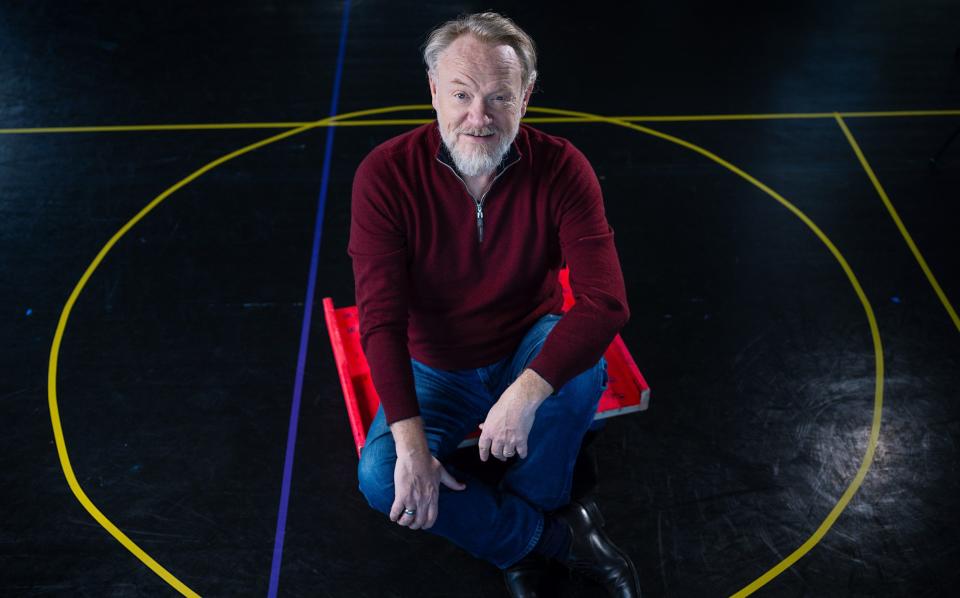
“The actor Jason Flemyng once told me a great story about Dad and his father, the film director Gordon Flemyng, at a party at Elizabeth Taylor’s house,” he says. “She decided she wanted to go to bed so she cut the bar off in order to get everyone to leave. She went around saying her goodbyes and then went up to her bedroom, only to discover that Gordon and my dad had made themselves at home, knocking back orange juice with one hand and her Chanel Number Five with another. ‘You can close the bar,’ they told her, ‘but you can’t get rid of us!’.”
I tell him it’s hard to imagine his father – with his now mythic reputation for carousing, brawling, philandering and taking copious amounts of drugs (Jared’s younger brother, Jamie, also an actor, once found him with his face in a pile of cocaine) – in today’s considerably more puritanical, morally censorious climate.
“God, he would have hated it,” says Harris. “He would have detested the double standards, the virtue signalling. People in America are so confused these days about what they are allowed to enjoy and what they have to pretend they don’t enjoy but which they do anyway at home. There are still hellraisers like my father in Hollywood but they are only like that among their friends. They just don’t do it in public.
“For him, bad behaviour was all about cocking a snook at the status quo. Coming from Ireland, he was keen to be seen to be sticking his fingers up to the establishment.”
Jared recently collaborated on Adrien Sibley’s 2022 Sky Arts documentary, The Ghost of Richard Harris. Did he discover anything new about his father? “That he had a nihilistic streak. The film shows him saying ‘I absolutely believe the world is bad… it’s almost something that should never have happened... Nothing works and we don’t like each other… It’s horrible.’ So that came as a shock. But then he said: ‘Live your life... don’t waste it,’, which was pure him.”
For the documentary and at the director’s suggestion, Jared spent a night in his dad’s former bedroom at the Savoy, where he had lived for 28 years. “I think Adrian was hoping I’d encounter my father’s ghost, but I didn’t.” For a second his voice almost breaks. “I would have absolutely loved it. My brother Damian says he has had an encounter like that. But the ghosts don’t visit me.”
He misses his mother, who was 85 when she died. A former debutante and Rada graduate, she was married four times, including to the actor Rex Harrison, who by all accounts treated her appallingly, to the disgraced former Tory-MP-turned-prison-chaplain Jonathan Aitken up until her death and, before him, for four years to Aitken’s cousin Peter. Marriage to Richard was glamorous but hard – he’d often disappear on week-long benders – and Harris credits her with keeping the family together.
“She never missed a visiting day or a half term. Dad was more about the big gesture. He was just as genuine but he’d be off in his own life and he’d check back in and it was thrilling. It wasn’t that he wasn’t interested, but there was a lot that caught his attention.”
All the same, did he not crave greater stability? “I’ve got nothing to compare it to. Anyway, we knew they loved us. My dad might not have done Mr Mum but my mum made sure we knew we could rely on her. She always wanted to provide us with a home. It drove her nuts because, in the end, my father was the one who did that. She was always very restless, buying houses, doing them up then moving on. Our real childhood home ended up being my dad’s holiday house in the Bahamas.”
In her final years, his mother became very ill, suffering heart failure and various strokes. “The sad thing is she started to disappear six or seven years before she died,” says Harris. “That was very difficult to watch. Just before she died she became convinced she was in the house of a friend. I’d tell her, ‘But it must be a friend you trust very much because there is your great grandmother’s chest, here is the photograph you bought when you were married to Rex’.
But she could still run rings around us almost to the end. She had a brain bleed at one point and when she came back home from hospital, Jonathan greeted her on the steps of the house and said: ‘My dear, I didn’t think it was possible for me to love you more than I did the day I married you, but looking at you now, so frail, I love you even more.’ And she snapped back: ‘That’s because you think you are finally in control.’”
Harris gets on well with Aitken, who became a born-again Christian after spending 18 months in prison for perjury in 1999 and who had previously lived with Rees-Williams for two years in the 1980s before she married Peter, finally marrying her himself in 2002.
“He adored my mother. And he’s had this fascinating life. He used to be a journalist and covered the war in Vietnam. A few years ago, he’d gone in for this operation, but they botched the after treatment. Basically his gut was going necrotic and he was dying. And because of his Vietnam experiences, he recognised the process of death. He was rushed to hospital and said to my mother, ‘My dear, I’m dying. I fear the next time we see one another may well be at my funeral.’ She said, ‘Don’t worry dear, I know just what to wear’. She was not going to let him have all the attention.”
He and Aitken would often discuss politics. “He predicted the rise of Trump. And he’s still a party man, although he’ll criticise his own people. Whenever there was a lull in the conversation I’d ask him about cabinet meetings with Maggie Thatcher, whom he adored. He told me it was true she had this tremendous sexual energy – and would flirt outrageously with all the men.”
Harris is terrific company – generous, and to the point. Yet I realise that throughout our conversation, almost every time I’ve asked him a question about himself, he either bats it away or replies with an anecdote about someone else, often his dad. This most gifted, self-effacing of actors may have long ago shaken off his father’s formidable legacy, yet I wonder if, on another level, he seems all too happy to hide behind it.
“I love talking about my dad,” he says. “Why wouldn’t I? I love him.” He tells one more, final story “When he was finally taken out of the Savoy on a stretcher [Harris was diagnosed with Hodgkin’s disease in 2002 and died a few months later at the age of 72] he propped himself up and said – Jared adopts a highly theatrical melodramatic tone – ‘It was the food!’. Mum was laughing, saying, ‘You terrible thing, you’ve been living at that hotel for 28 years, you can’t say things like that.’ And Dad said, ‘I can, because now they can’t sell the story.’ He didn’t want the Savoy to tell the papers he’d been stretchered out to an ambulance, so he delivered a punchline that made them look bad.”
The Homecoming is at the Young Vic, London SE1, from December 5 until January 27 youngvic.org

